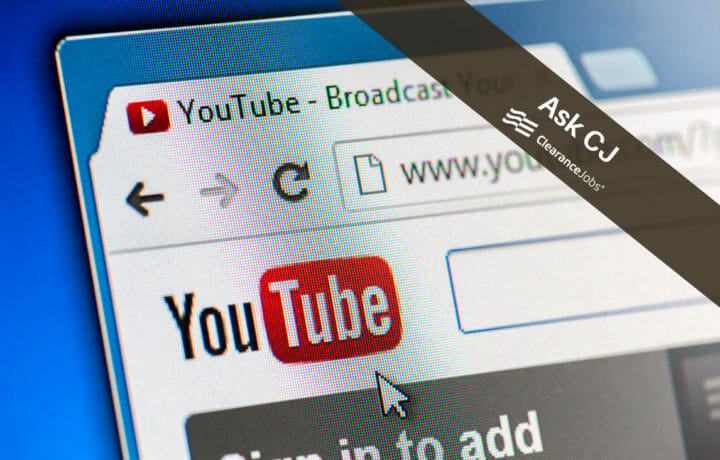When filling out government forms like the SF-86 and SF-85P, it’s important to be forthcoming with all information asked. It can not only cost you the ability to obtain security clearance and national security careers but can also land you some time in the clink if you’re caught lying.
Some applicants see the grey area and are confused on whether to answer ‘yes’ or ‘no’ to specific illicit activities. For example, illegally downloading music is pretty black and white when it comes to misuse of IT systems and US federal law, but platforms like YouTube that are public domain and have varying copyright tiers can add layers that may confuse clearance applicants:
“I have worked as a teacher for years and have downloaded images and sometimes, YouTube videos, to include in my lecture slides and to avoid having to deal with WiFi issues and opening YouTube during class. I always thought this was okay under Fair Use laws, but now fear some of it was technically not (though many teachers do the same) and that I should have been more careful. Should I answer “Yes” to the question [on the SF-85P for public trust positions]?”
Before answering yes or no, the original poster needs to check the specific YouTube video licensing, and what the school policy is on downloading media to company devices (unless they used a personal computer).
STANDARD FORM 85P
The SF-85P, the questionnaire for public trust positions asks, “In the last seven years, have you introduced, removed, or used hardware, software, or media in connection with any information technology system without authorization, when specifically prohibited by rules, procedures, guidelines, or regulations or attempted any of the above?”
The Office of Personnel Management (OPM) form notes that an applicant’s disclosure of information or truthful responses can be used as evidence in a subsequent criminal proceeding. IT systems are defined as all related computer hardware, software, firmware, and data used for the communication, transmission, processing, manipulation, storage or protection of information.
YOUTUBE’S TERMS OF SERVICE
Per YouTube’s terms of service: “You shall not download any content unless you see a ‘download’ or similar link displayed by YouTube on the Service for that content. You shall not copy, reproduce, distribute, transmit, broadcast, display, sell, license, or otherwise exploit any content for any other purposes without the prior written consent of YouTube or the respective licensors of the content.”
Some videos on YouTube with the correct licenses are legal to download. For example, public domain works are when a video copyright has expired, been forfeited, or waived. No one technically retains ownership of the content, so it’s free to distribute.
Once you’ve confirmed that you’re not violating the content creator or YouTube’s guidelines, now it’s on to your school’s regulations. Using content for educational or academic purposes without gaining a profit is generally okay for instruction, but each school has specific policies that should be looked into.
If you find that the YouTube video licensing fit the category of sharing it with a classroom and it didn’t violate any of your employer’s rules, you’re in the clear and can answer ‘no’ with confidence. Either way, don’t expect an issue like this to result in security clearance denial, or even a delay.
Much about the clearance process resembles the Pirate’s Code: “more what you’d call guidelines than actual rules.” This case-by-case system is meant to consider the whole person, increase process security, and allow the lowest-risk/highest-need candidates to complete the process. However, it also creates a lot of questions for applicants. For this reason, ClearanceJobs maintains ClearanceJobsBlog.com – a forum where clearance seekers can ask the cleared community for advice on their specific security concerns. Ask CJ explores questions posed on the ClearanceJobs Blog forum, emails received, and comments from this site.* This article is intended as general information only and should not be construed as legal advice. Consult an attorney regarding your specific situation.




